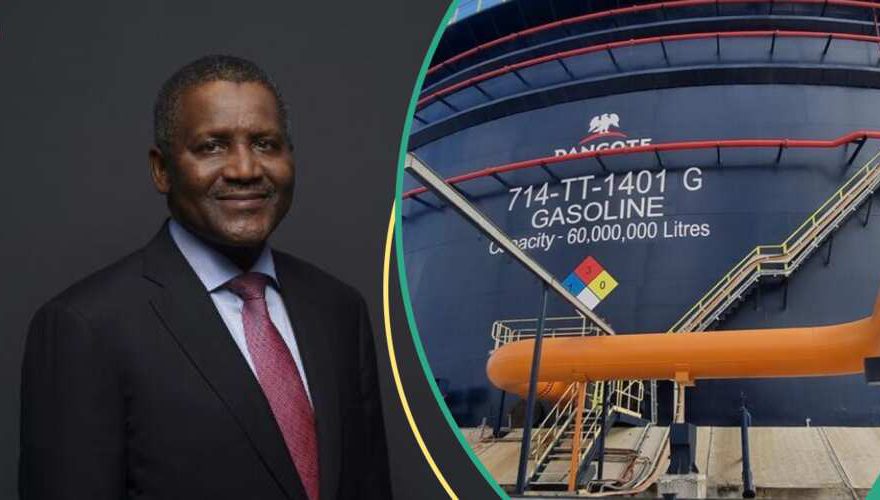
In a recent development that signals a significant milestone for Nigeria’s energy sector, the highly anticipated Dangote Refinery is reportedly gearing up to commence the supply of Premium Motor Spirit (PMS), commonly known as petrol, in May. The refinery, touted as Africa’s largest, is poised to address longstanding challenges in Nigeria’s petroleum industry and usher in a new era of self-sufficiency and industrialization.
JOIN US FOR MORE ON:
or
or Follow us on WhatsApp Channel
Owned by Aliko Dangote, Africa’s wealthiest individual, the Dangote Refinery has been under construction for several years, with an estimated investment of $12 billion. Situated in Lagos, Nigeria’s commercial capital, the refinery boasts an impressive refining capacity of 650,000 barrels per day, making it the largest single-train refinery globally.
The decision to initiate PMS supply comes at a crucial time for Nigeria, a country that has historically struggled to meet its domestic demand for refined petroleum products. Despite being a major oil-producing nation, Nigeria has relied heavily on imports to bridge the gap between supply and demand, leading to supply shortages, price fluctuations, and economic strain.
The operationalization of the Dangote Refinery promises to revolutionize Nigeria’s energy landscape by significantly reducing the country’s dependence on imported petroleum products. By ramping up domestic refining capacity, the refinery aims to ensure a stable and reliable supply of petrol to meet the needs of Nigerian consumers and industries alike.
Moreover, the Dangote Refinery is expected to have far-reaching implications beyond Nigeria’s borders. As the largest refinery in Africa, it sets a precedent for self-sufficiency and industrialization within the continent’s oil and gas sector. With its vast production capacity, the refinery has the potential to position Nigeria as a key exporter of refined petroleum products, contributing to regional energy security and fostering intra-African trade.
However, the journey towards full operationalization has not been without its challenges. The Dangote Refinery has faced delays and setbacks, primarily due to financing issues, regulatory hurdles, and logistical complexities. Nevertheless, with steadfast determination and strategic planning, the refinery is poised to overcome these obstacles and emerge as a cornerstone of Nigeria’s industrial infrastructure.
As the Dangote Refinery prepares to roll out PMS supply in May, anticipation runs high for the transformative impact it will have on Nigeria’s energy sector and the broader African continent. With its state-of-the-art technology, vast production capacity, and commitment to excellence, the refinery stands as a beacon of hope for energy security, economic prosperity, and industrial development in Nigeria and beyond.
